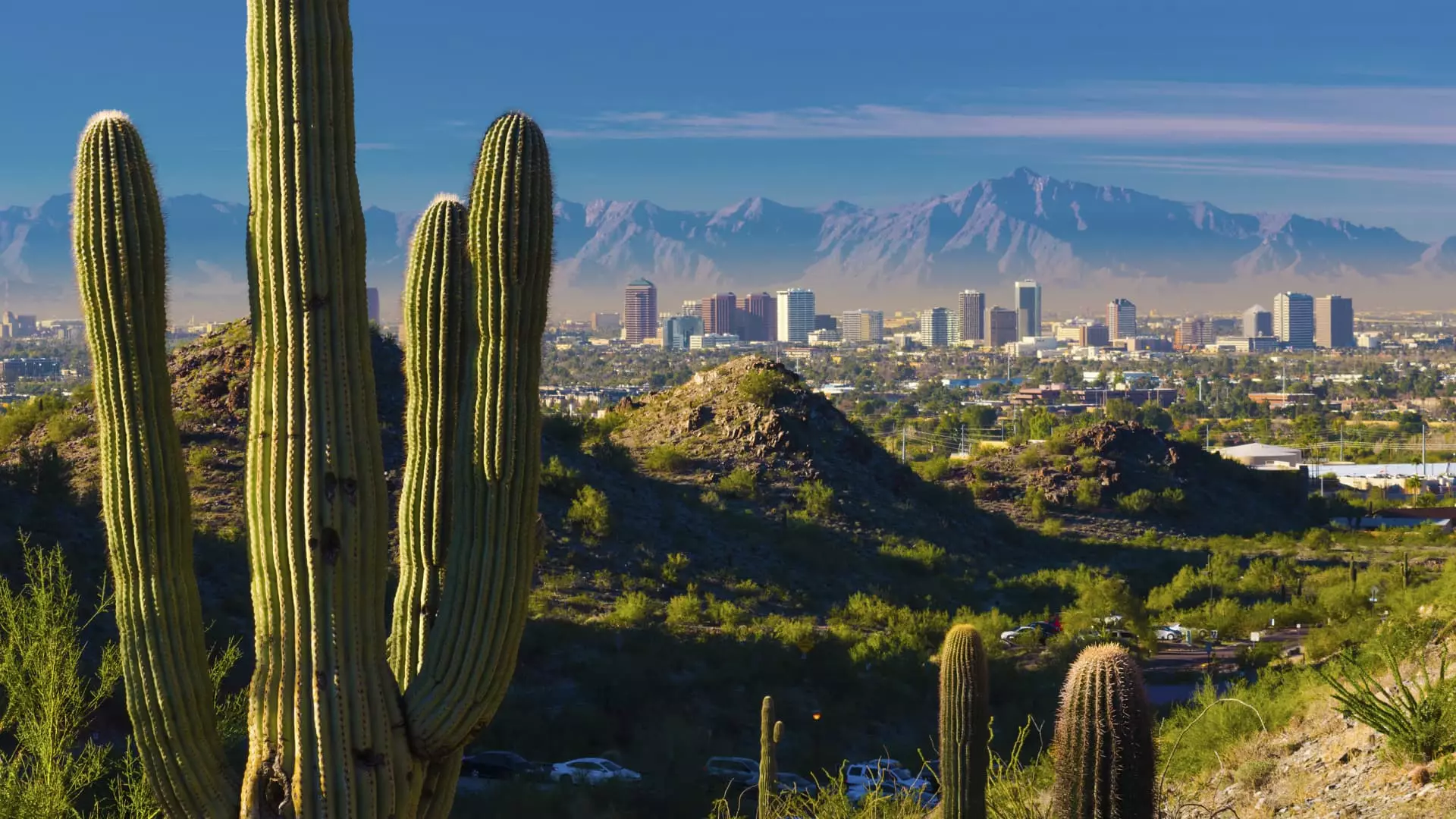When considering influential technology hubs in the United States, cities like Silicon Valley, Seattle, and Austin often come to mind. However, a quieter revolution is taking place in Phoenix, Arizona, where the arid landscape is transforming into a burgeoning center of technological innovation. While traditionally recognized for its golf courses, Major League Baseball Spring Training, and warm climate, Phoenix has gradually developed a strong presence in semiconductor manufacturing and autonomous vehicle testing. This article delves into how Phoenix has become ripe for tech development and the reasons behind its burgeoning status.
According to Anne Hoecker, the global head of technology at Bain Global, several key elements characterize successful technology hubs. Phoenix has begun to exhibit these critical components that facilitate its growth in the tech sector. The favorable business environment stands as the first pillar, significantly enhancing the city’s appeal to tech firms. A combination of regulatory support, competitive tax incentives, and investment-friendly policies encourages companies to set up shop and innovate in Phoenix.
Another essential factor is the ecosystem of connected businesses that thrives within the city. This not only fosters collaboration among firms but also creates a symbiotic relationship that nurtures startups and attracts investors. Furthermore, the proximity of notable academic institutions, particularly those with robust engineering programs, ensures a flowing pipeline of skilled labor capable of meeting the demands of the evolving tech landscape in Phoenix.
Among the pivotal developments in Phoenix’s tech realm is the substantial investment from the Taiwan Semiconductor Manufacturing Company (TSMC). The announcement of a staggering $65 billion investment in the Phoenix area has caught the attention of industry insiders. TSMC’s entry into the market, marked by its ambition to replicate the successful science park model pioneered in Taiwan, promises to generate approximately 62,000 jobs that will not only benefit the local economy but also bolster the city’s reputation as a leading semiconductor manufacturing hub.
The adequate infrastructure arrangements put in place by the Greater Phoenix Economic Council, which spent years designing a suitable technology park, played a crucial role in securing TSMC’s presence in the city. Features that streamline operations for smaller suppliers, such as rental spaces, make setting up operations much easier and more efficient.
As the tech landscape of Phoenix evolves, self-driving vehicles have become emblematic of its innovative spirit. Companies including Uber, Cruise, and Waymo are forefronting their efforts to test autonomous cars within the city’s urban landscape, capitalizing on the favorable grid-like street structure and reliable weather conditions. Such factors have earned Phoenix a reputation as a testing ground for autonomous technology.
The proactive stance taken by Arizona’s policymakers, exemplified by former Governor Doug Ducey’s executive orders on reducing barriers for autonomous vehicle testing, has also fueled growth in this sector. Waymo, which initiated testing in Phoenix in 2017, has significantly expanded its operations, establishing a robotaxi service that now spans over 315 square miles.
In addition to its ventures into autonomous vehicles, Phoenix is positioning itself as a frontrunner in drone technology. With Amazon’s recent approval for its Prime Air drone delivery service in the Tolleson suburb, the city shines as a model for urban drone operations. The tech giant’s ambition to scale up deliveries to 500 million annually illustrates how Phoenix is paving the way for advances in logistics and consumer delivery systems.
David Carbon, Amazon’s vice president and general manager of Prime Air, emphasizes the company’s global ambitions, projecting continued growth and innovation in the sector by 2025. As these technologies develop, Phoenix is set to retain its advantageous position as a testing ground and production hub for cutting-edge innovations.
Phoenix may not resonate as the quintessential tech city, but its strategic investments, supportive policies, and collaborative ecosystem are fundamentally transforming it into a formidable technology hub. The confluence of semiconductor manufacturing and advancements in autonomous vehicles and drone technology showcases the city’s emerging role in the future of innovation. As Phoenix continues to foster these developments, it proves that a shift in perspective can reveal an unexpected titan in the technology landscape, one that is ready to redefine its identity in the years to come.

